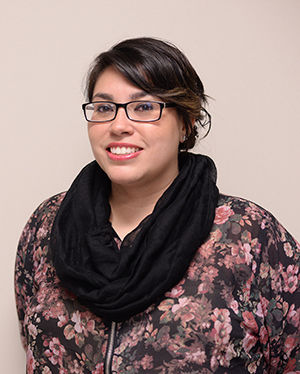Opinion: Muslim students’ deaths spark conversation about culture in media

Amanda Paniagua is a graduate art history major. Contact her at [email protected]
February 16, 2015
Deah Barakat, Yusor Abu-Salha, and Razan Abu-Salha were shot to death in Chapel Hill, North Carolina last week. Their deaths were incredibly tragic and are a testament to the complicated world of identity politics we find ourselves in today.
The media have focused attention on the fact that the culprit, Craig Stephen Hicks, made Facebook posts prior to his murder condemning religions. Please, I beg of you, do not confuse his atheism as correlation.
If you do a minor survey of the secular, humanist, and atheist movement, you’ll find that many of us are on the front lines of social justice issues. In fact, this division of applicable atheism versus strict atheism is a continuous debate within the secular community.
For some, like myself, it isn’t enough to simply be godless. I still have a moral compass and a sense of justice that I want to see in the world because I only have one life and I want to make it count. I cannot speak for other non-believers on our campus but I certainly am weary of the way in which the media has clung to Hick’s anti-religious sentiments as though this is the clear-cut account of his motivation.
The complexities, for me, are largely in part of living in a post-9/11 world in which its difficult to walk the fine line of being critical of religious beliefs while simultaneously respecting a culture that is often times misrepresented in Western media and society.
Hick’s animosity toward religion is one thing, but is not felt within a vacuum devoid of context and social environment. Given the global racial climate in which we live, it’s not surprising that he would target Muslim men and women. Since 9/11, they have been the victims of unnecessary violence and prejudice yet, as President Obama so eloquently pointed out, very little has been said in acknowledging the violence pressed upon Black Americans in our own country and global citizens elsewhere by Christian extremists.
So while religious extremism is one issue, the unresolved issues surrounding racism, racial bias, and xenophobia all work simultaneously to weave a very complicated circumstance that has resulted in three innocent people being murdered.
I do not condone violence when it comes to religious critique. I err on the side of careful consideration of context. Even in my days of Christian belief, I took the call of Christ to love one another very seriously. That commandment is still very real for me despite having shed the layer of religious faith, and now I’m a self-proclaimed, proud atheist.
I leave you with the amazing Cornel West, because I think he said it best: “Justice is what love looks like in public.”
Contact Amanda Paniagua at [email protected]
























